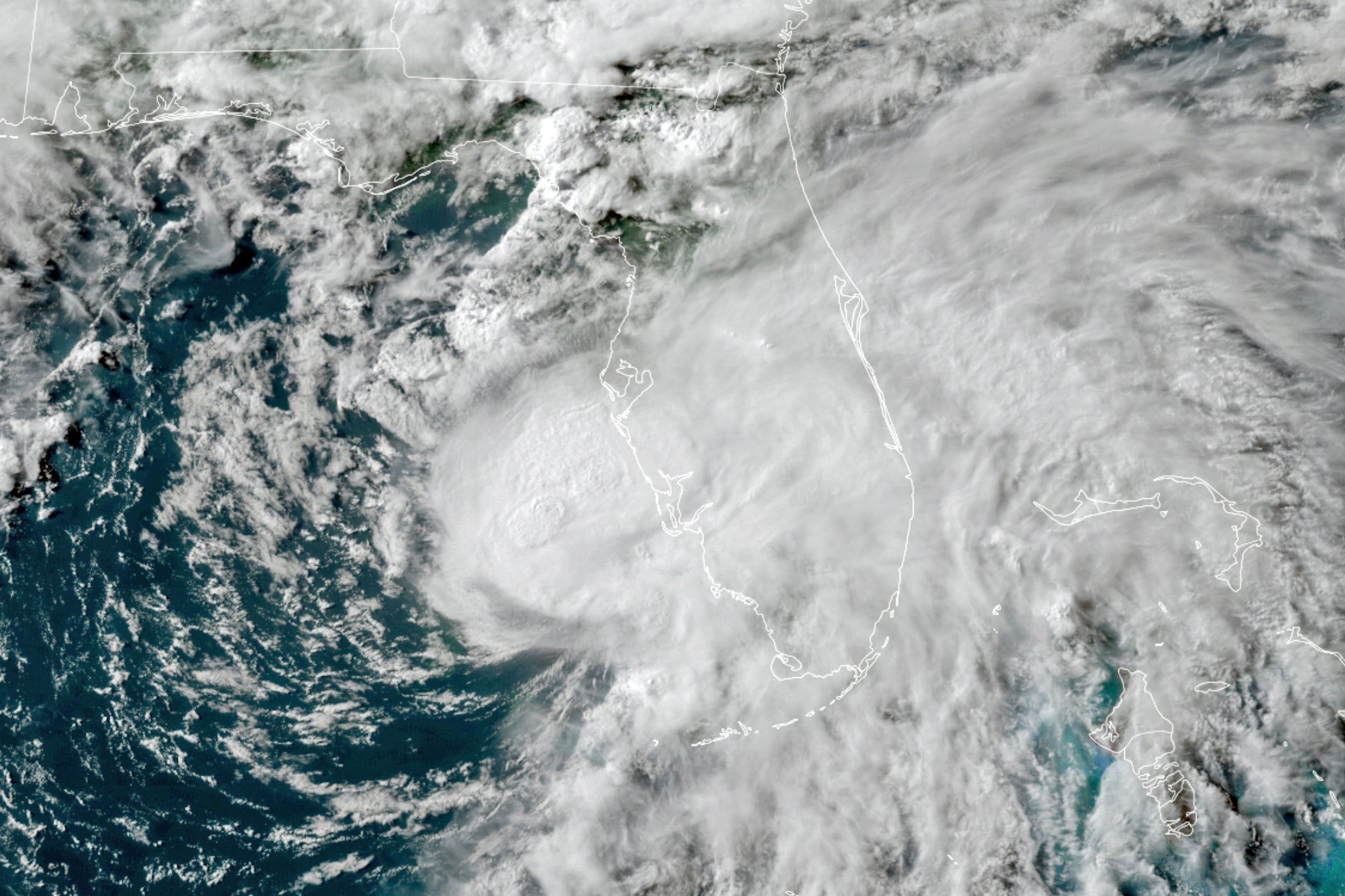Forecasters: Hurricane season to be busier than 1st thought
U.S. government forecasters say they expect the Atlantic hurricane season to be busier than they first thought

Your support helps us to tell the story
From reproductive rights to climate change to Big Tech, The Independent is on the ground when the story is developing. Whether it's investigating the financials of Elon Musk's pro-Trump PAC or producing our latest documentary, 'The A Word', which shines a light on the American women fighting for reproductive rights, we know how important it is to parse out the facts from the messaging.
At such a critical moment in US history, we need reporters on the ground. Your donation allows us to keep sending journalists to speak to both sides of the story.
The Independent is trusted by Americans across the entire political spectrum. And unlike many other quality news outlets, we choose not to lock Americans out of our reporting and analysis with paywalls. We believe quality journalism should be available to everyone, paid for by those who can afford it.
Your support makes all the difference.After a record start, followed by a near-silent July, the Atlantic hurricane season looks like it will be busier than meteorologists predicted a few months ago.
The National Oceanic and Atmospheric Administration on Wednesday updated its outlook for the 2021 Atlantic season, slightly increasing the number of named storms and hurricanes expected in what is predicted to be a busy — but not record-breaking — year.
The agency is now forecasting 15 to 21 named storms instead of the 13 to 20 it predicted in May. Meteorologists also said the number of expected hurricanes is seven to 10, instead of six to 10.
The chance for an above average hurricane season increased from 60% to 65%, with a 15% chance that forecasters will run past the list of 21 storm names. Last year saw a record 30 named storms and forecasters had to use Greek letters by the end of the season.
A reduction in high level cross winds, normal to slightly warmer sea temperatures, increased rains in Africa where seeds of stronger storms start, a possible cooling of the central Pacific and a general period of high storm activity since 1995 are reasons for a busy season, said lead forecaster Matthew Rosencrans.
Colorado State University which pioneered hurricane seasonal forecasts, last month also increased the number of storms expected in its forecast.
In early July, soon-to-be Hurricane Elsa formed and was the earliest fifth named storm on record, beating a mark set last year. Elsa also formed in the eastern Caribbean and history shows that years when storms develop in eastern Caribbean in June or July it tends to be a busy season, Rosencrans said.
Hurricane season lasts through the end of November, with its peak running from mid-August to mid-October.
___
Follow Seth Borenstein on Twitter at @borenbears.
___
The Associated Press Health and Science Department receives support from the Howard Hughes Medical Institute’s Department of Science Education. The AP is solely responsible for all content.